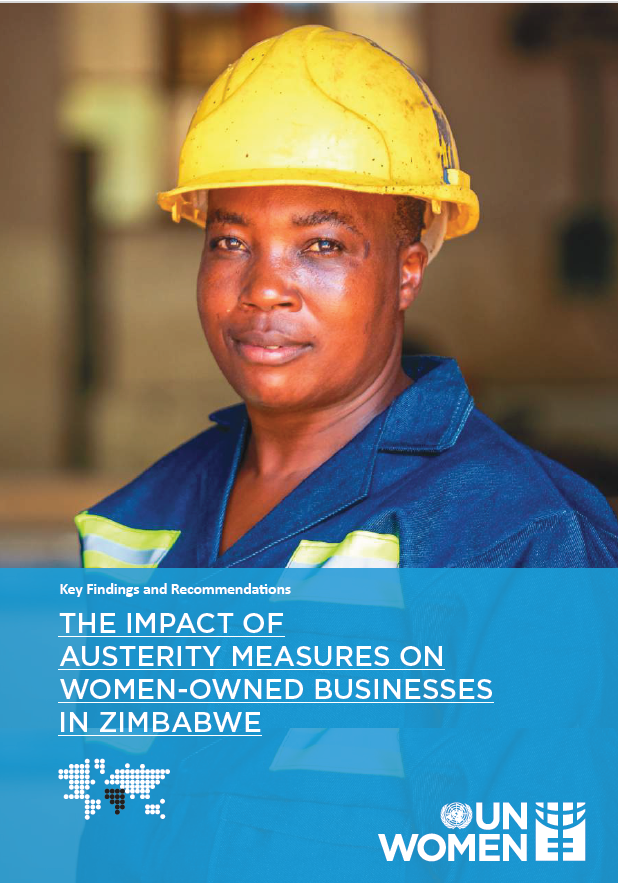
The Impact of Austerity Measures on Women-Owned Businesses in Zimbabwe-Key Findings and Recommendations

Taking into consideration Zimbabwe’s austerity-oriented macroeconomic policy trajectory introduced in 2018, this study analysed women-owned enterprises in Zimbabwe. The study considered numerous variables including access to markets, utilisation of financial services, access to capital, impact of taxes, adoption of technology, professional capacity building for staff, and adaptive measures adopted by women-owned businesses in an austerity-oriented macroeconomic environment. It employed a mixed methods approach using surveys, interviews, and focus group discussions to collect data from 582 women-owned MSMEs that were selected through stratified random sampling from across 10 provinces in Zimbabwe. Most women-owned businesses emerged as survivalist enterprises due to economic hardships. These businesses are predominantly informal (68 per cent individually owned, 64 per cent unregistered) due to complex regulatory requirements. Women-owned businesses are mostly micro enterprises (87 per cent) and many owners lack advanced education and business skills. Initial capital investment ranged from US$101-500, mainly sourced from family and friends. Only 8 per cent accessed bank financing due to stringent requirements, and just 28 per cent had bank accounts, citing high costs and lack of trust in financial institutions. Despite financial inclusion policies put in place by government, access to formal financial services remains limited. Export participation was extremely low (2 per cent), hindered by limited market information, complex procedures, and high transport costs. The study recommends gender-responsive policies, ease of doing business reforms, support for formalization, improving financial access, strengthening business development services, enhancing skills training, and expanding export support to improve economic opportunities for women entrepreneurs.
View online/download
Order printed/published version
jack.abebe@unwomen.org